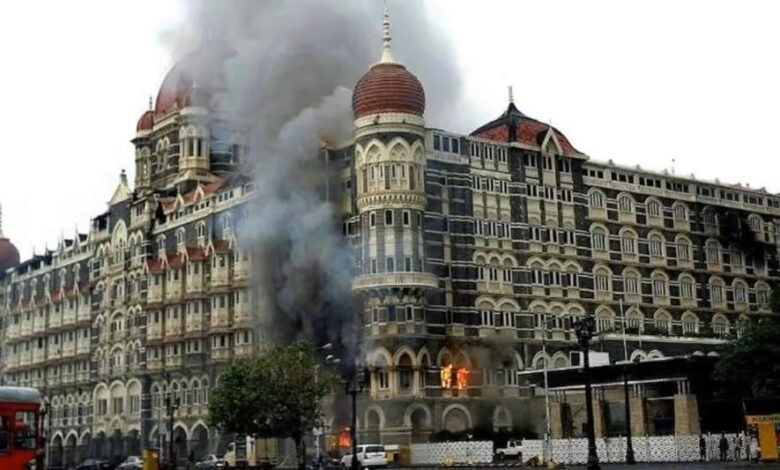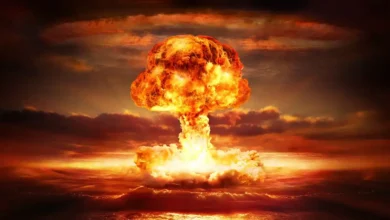
As we mark the sixteenth anniversary of the 26/11 Mumbai attacks, it is essential to reflect on the events that unfolded during those harrowing days in November 2008 and understand how they transformed India-Pakistan relations forever. This tragic incident not only claimed numerous lives but also exposed significant vulnerabilities in India’s security apparatus and altered the geopolitical landscape of South Asia.
The Events of November 26-29, 2008
The Mumbai attacks were a series of coordinated terrorist strikes carried out by ten members of the Lashkar-e-Taiba (LeT), a Pakistan-based militant organization. The assault began on the evening of November 26, 2008, and lasted until November 29, resulting in widespread chaos across Mumbai. The attackers targeted multiple high-profile locations, including:
- Chhatrapati Shivaji Terminus: A major railway station where indiscriminate firing resulted in significant casualties.
- Leopold Café: A popular tourist destination that was one of the first sites attacked.
- Taj Mahal Palace Hotel: A luxury hotel that became the focal point of the siege, with hostages taken and intense firefights occurring.
- Oberoi-Trident Hotel: Another luxury hotel targeted by the attackers.
- Nariman House: A Jewish community center where hostages were held.
The attacks resulted in 166 deaths, including 18 security personnel and several foreign nationals, with over 300 injuries reported. The assault was characterized by its brutality, involving mass shootings, bombings, and hostage situations that left a lasting scar on the psyche of the nation.
Execution of the Attack
The attackers arrived by sea, hijacking an Indian fishing trawler to reach Mumbai’s coastline. They were armed with sophisticated weapons, including AK-47 rifles and grenades. The operation was meticulously planned, with each attacker assigned specific targets to maximize casualties and media attention. The attackers communicated with their handlers in Pakistan throughout the operation, demonstrating a high level of coordination and support from across the border. The siege culminated in a dramatic rescue operation led by India’s National Security Guard (NSG), which involved intense firefights at both hotels and Nariman House. By November 29, all attackers were neutralized, but not before inflicting severe damage to Mumbai’s reputation as a safe city for both residents and tourists.
Immediate Aftermath and Global Response
In the wake of the attacks, India faced intense scrutiny regarding its security measures. The incident prompted widespread calls for reform in counter-terrorism strategies and intelligence sharing. The government instituted various measures to bolster coastal security and enhance emergency response protocols across major urban centers. Internationally, the attacks drew condemnation from around the world, with leaders expressing solidarity with India. However, the most significant fallout occurred in India-Pakistan relations. The Indian government accused Pakistan of harboring terrorists and demanded action against those responsible for planning and executing the attacks. This led to heightened tensions between the two nations, which had already been strained due to previous conflicts.
Long-Term Implications for Indo-Pak Relations
The 26/11 attacks marked a turning point in Indo-Pak relations. Following these events:
- Diplomatic Isolation: India sought to isolate Pakistan diplomatically, leading to a suspension of dialogue processes that had previously aimed at improving bilateral relations.
- Increased Military Preparedness: India ramped up military operations along its borders with Pakistan, leading to an arms race that further escalated tensions.
- Public Sentiment: The attacks galvanized public opinion against Pakistan in India, leading to widespread calls for retaliation and justice for victims’ families.
Despite international pressure on Pakistan to take action against terrorist groups operating from its soil, progress has been slow. Many perpetrators remain at large or have received lenient treatment under Pakistani law.
Conclusion: Remembering 26/11
As we remember those who lost their lives during this tragic event on its thirteenth anniversary, it is crucial to reflect on how such acts of terror continue to shape our world today. The legacy of 26/11 serves as a stark reminder of the ongoing threat posed by terrorism and highlights the need for sustained efforts toward peace and security in South Asia. The enduring impact of these attacks on Indo-Pak relations underscores the complexities involved in addressing terrorism while navigating diplomatic ties. As we honor the victims and heroes who emerged during this dark chapter in history, we must also strive for a future where such tragedies are not repeated. In remembering 26/11, we commit ourselves not only to justice for those affected but also to fostering dialogue aimed at healing wounds between nations that have suffered too long from violence and mistrust.
For the latest updates on News and Current Trends, follow us on X/Twitter here.
Infornex is now on every popular social media. Follow us on your favourite one to never miss an update, click here.
For more Breaking News and Updates, click here.



